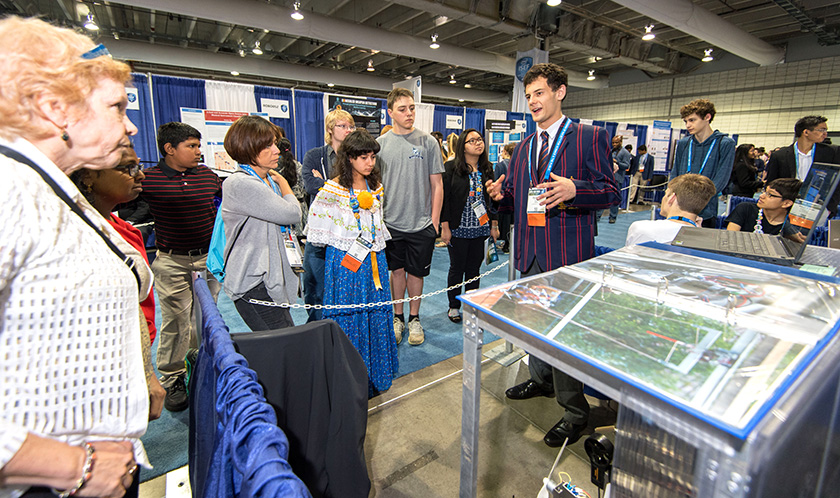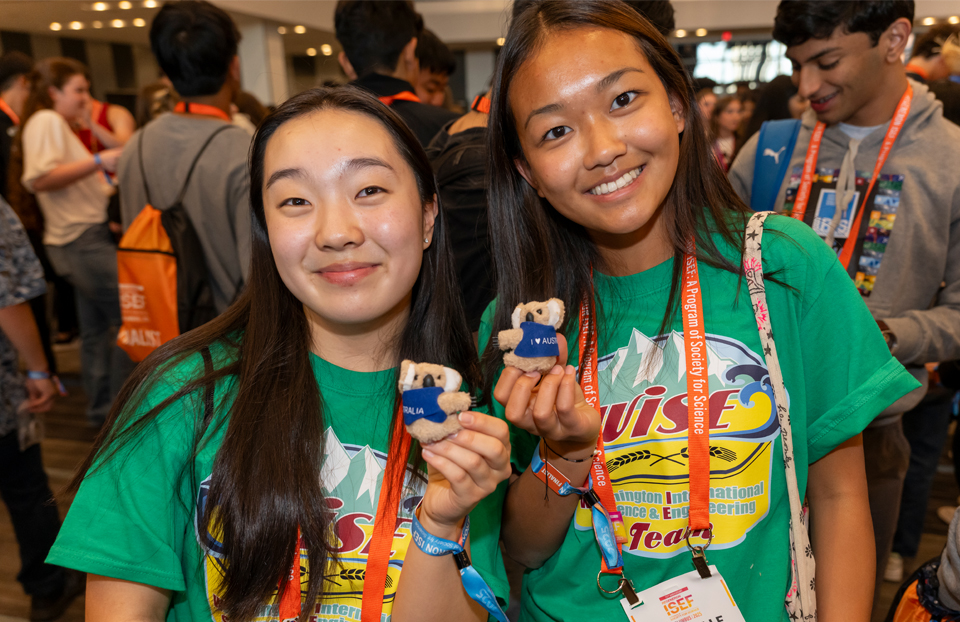This judge has volunteered at Intel ISEF for 8 years

Chuck Vukotich has volunteered as a judge at the Intel International Science and Engineering Fair for eight years. He is an invaluable volunteer, and encourages science professors and professionals to give back by judging.
Read on to learn more about what judging at Intel ISEF is like.
Chuck’s involvement in science fairs dates back to 1992, when he volunteered at the Pittsburgh regional science and engineering fair, the third oldest ISEF-affiliated fair in the world.

Today, Chuck is a valued Intel ISEF volunteer, participating in the fair since 2010. He’s been a member of the Pittsburgh Local Arrangement Committee, the group of people charged with helping the Society organize Intel ISEF, the Judging Chair for Pittsburgh, and is on the Judging Advisory Committee. He served as a judge or co-chair for several years at both Intel ISEF and the Pittsburgh Regional Science & Engineering Fair (PRSEF) in the categories of medicine, environmental science, and behavioral science and medicine.
At PRSEF, Chuck interviews the finalists about their projects and helps decide who moves on to Intel ISEF.
For the last 12 years, Chuck has worked at the University of Pittsburgh, studying influenza in school children. Previously, he worked for 30 years with the Allegheny County Health Department. “I’ve largely been in senior management, working in policy, grants, and managing people,” Chuck said.
These are people who will replace me in the world, and I want them to be ready.
“The hard part of my position as Judging Advisory Chair is recruiting judges for Intel ISEF,” Chuck said. “We had 905 people show up to judge or co-chair in Pittsburgh this year, which is a big number by historical standards, but I really wanted 1,000.” As a judge chair, Chuck has been responsible for building a core team of co-chairs and judges, including 44 people for each of the 22 categories of projects.
“For me, Intel ISEF 2018 started a whole year earlier,” Chuck explained. “It’s a networking job. I was constantly communicating with people using all means possible — telephone, in person, email, even some letters. You’re constantly asking people to come to judge. You’re constantly asking people to tell their friends and colleagues to come to judge.”
“I do this for the kids,” Chuck said. “But I also do it because I get to work with a great bunch of people, both the Society staff and volunteers. I have a lot of people with whom I share a love of Intel ISEF.”Learn more about judging at Intel ISEF
Chuck’s advice for new judges or volunteers: “Come and enjoy the experience,” he said. “You get to meet some great students and folks in your field. You get to make great connections.”
There are a lot of pieces that go into making Intel ISEF a reality, but everything exists because of the competition. “Judging takes on a super-sense of importance,” Chuck said. “It’s all about the students. These are people who will replace me in the world, and I want them to be ready.”
I have a lot of people with whom I share a love of Intel ISEF.
There are nearly 2,000 finalists who compete in Intel ISEF, “but when you add up all the school, local, regional, state, and country fairs in the affiliated fair network, you might have 500,000 kids competing in a science fair,” Chuck explained. “It gives them an opportunity to compete. No matter how good their project is, they’re learning something about science and about themselves.”
The finalists who come to Intel ISEF find out that there are many kids just like them, Chuck said. “They’re meeting kids from other cultures,” he said. “It helps them to figure out who they are.”


